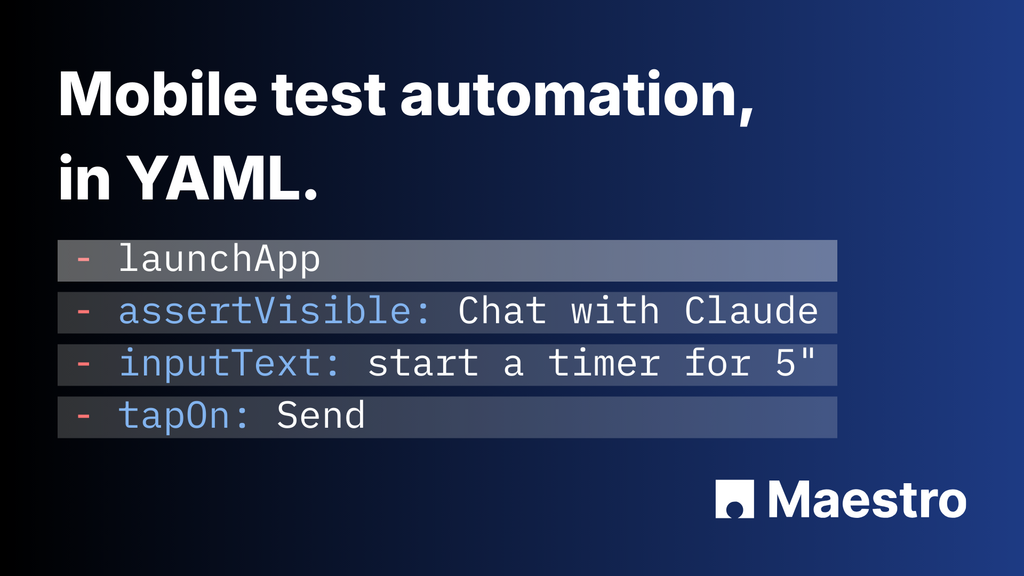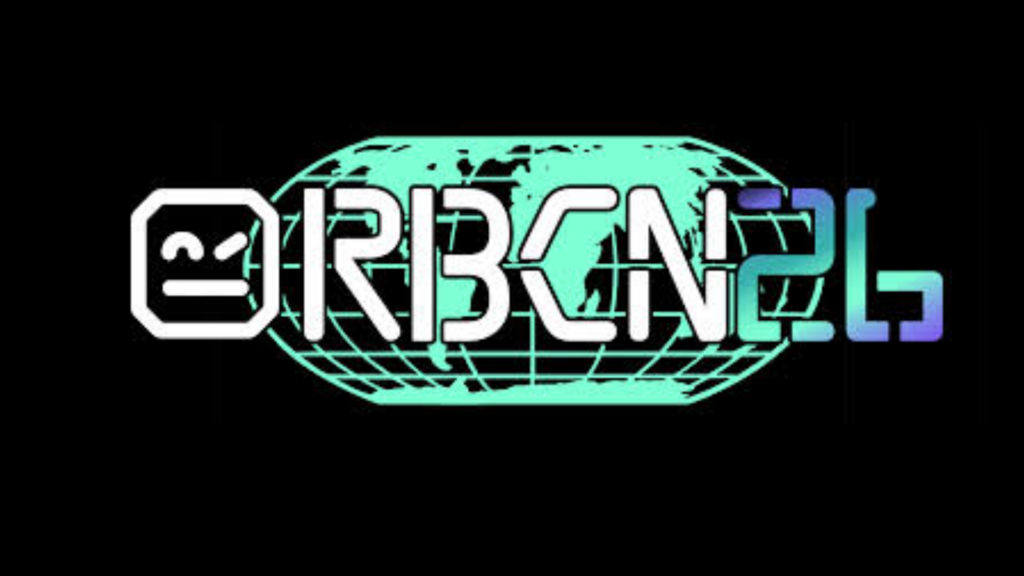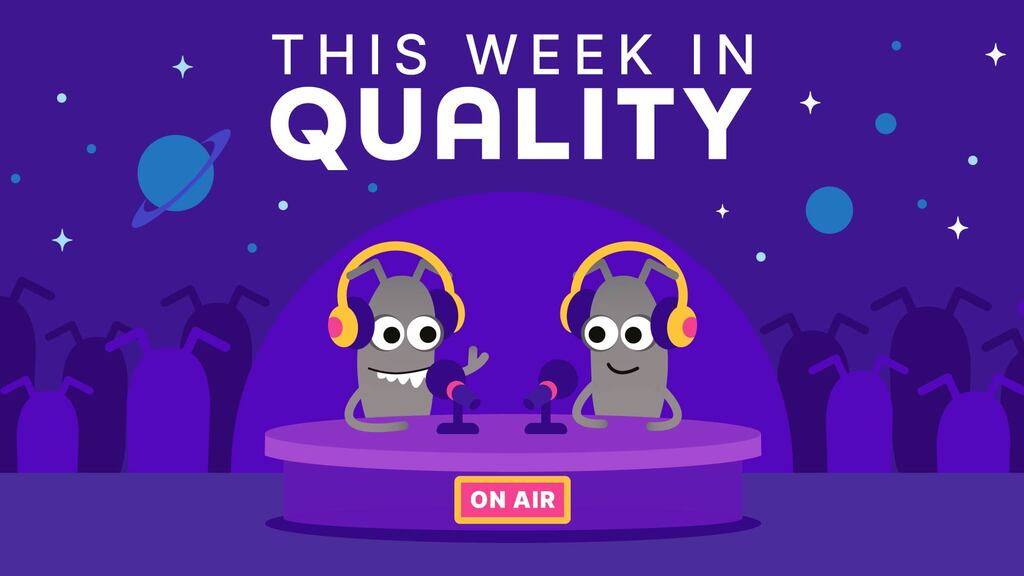Why I wrote this
We all get stuck sometimes. Sometimes you can’t quite find a path forward or that next step to take. It can happen when you're working through a problem, creating test artefacts, or thinking about how to phrase or explain something.
Being a thought worker isn’t easy. It takes effort, discipline and practice to think professionally for a living. But that is what testers signed up for, so that is what we must do.
So let's talk about getting stuck when we are working. What actually is being stuck, why does it happen, and what can we do about it to move forward?
What is the thinker’s block?
As you might have already guessed, it is exactly the same as writer’s block, but for thought workers. You know the drill. Screens blurring a bit, that Jira board's mocking you from the corner of your eye, and that path ahead you thought was clear? Gone. Vanished into thin air. Just… fog.
Now, as testers, that feeling, it’s a proper pain in the backside, isn’t it? Our whole gig is about sharp eyes, detailed freakery (in a good way!), and solving problems and investigating incidents that would make Cordelia Cupp proud. So, when "stuck" hits, it's not just a minor wobble. It’s like hitting a brick wall in the middle of a 100-meter sprint. Bug hunting gone sideways? Test cases feel like melted chocolate? That mountain of requirements to review is looking more like Mount Everest. Yeah, we’ve all been there, feeling utterly, properly, stuck.
But here's the thing. Getting stuck isn’t a personal failing. It's not like you’ve suddenly forgotten how to test or lost all your ‘mojo’. It is just part of being human. It's wired into how our brains actually work. And figuring out why we get stuck, and more importantly, how to get unstuck, that’s gold dust. Not just for us testers, but anyone trying to navigate this bonkers world of work and, well, life!
Good ideas are shy creatures. Go looking and they hide. But go off and do something else, and you might just bump into one.
So, let’s dive into the sciencey bits (don’t worry, I’ll keep it simple), to see how it messes with our testing necromancy, and then get to the good stuff. Proper, actionable tips to get you thinking, creating and bouncing again. Ready? Let’s do this!
Why the heck do we get stuck? Brain science (sort of)
Alright, let's peek under the bonnet of that amazing brain of yours.
Getting stuck? It’s a right old cocktail of brain stuff, chemicals, neural information processing and feelings. Here are the details of some of our brain states. See if you recognise or are familiar with any of them.
What is brain overload?
Your brain’s brilliant, but it has its limits. Bombard it with info, throw ridiculously complex tasks at it, overload it with nonstop interruptions (sound familiar, testers?), and BAM! Brain overload or, to be technical, cognitive overload. It just… shuts down a bit. Creativity? Problem solving? All gone bye-bye. Think of it like your laptop when you’ve got a million tabs open, including that one playing music you can’t find. Everything slows to a crawl, and then… freezes! In our (human) case, we have basically run out of capacity for our working memory.
What is decision fatigue?
Brain's gone to the shops for snacks! Every single decision, even the tiniest one, nibbles away at your brain juice. And testers? Mate, we’re decision-making machines! Expected versus actual? Strategy time? Bug priority?
It's a constant stream of choices. This decision fest? It’s exhausting! Brain drain leaves you mentally flat and less likely to tackle the next hurdle effectively.
As with brain overload, one reason could be memory capacity. We could be trying to do too many things at once or pushing to be too original. Sometimes you don’t have to reinvent the wheel. Whatever the causes, the symptoms often feel the same.
What is tunnel vision?
Can't see the wood for the trees (or bugs for the code?) Deep dive into a problem? Brilliant! But sometimes, we go too deep. Tunnel vision kicks in. Spotting one potential bug could cause you to miss the blooming obvious root cause right under your nose? Trust me, I’ve been there. So focused on one tree, you can’t see the forest. Dipping into the technicality again, this is sometimes called reduced peripheral awareness. We can have difficulty processing or recognising information outside of our central, focused view.
What is psychological stress?
Brain's in full panic mode! Deadlines, emotional strain, pressure, and stakeholders breathing down your neck! Stress! It triggers the amygdala, your brain’s emotional control panel. "Fight or flight" mode can be triggered by putting focus fully on survival rather than an interesting but tricky bug situation! Suddenly, your intelligence centre, the prefrontal cortex (the bit that does problem solving and planning), gets shoved to the back of the bus. Fear of messing up, deadline anxiety, bug frustration? The amygdala goes wild, making it harder to think straight. Stress and stuckness in a vicious circle.
Stress can affect our executive functions too. Our working memory, organisation, responses or cognitive processing can be reduced or stop almost completely. Executive dysfunction is when you stop being able to make decisions, even if they are in your interest. As I wrote in my article, Burnout: A personal experience, “Any task, such as creating documents for work, seemed like too much. I’d sit there and stare at the screen, stumped and unable to continue.”
What is a dopamine crash?
Brain's gone "nope, not today!" Dopamine is the "motivational juice" in your brain. Do the same old tasks (parts of testing, eh?), dopamine dips. Plus, our brains are wired for novelty and new stuff! If you are stuck, your brain might helpfully whisper, TV? Social media? Snacks? Walk? Find that missing sock from the last wash? A crash means the power to your neurotransmission, which plays a crucial role in motivation, happiness, and focus, has been cut.
Why we might get stuck, more than most
Testing is a brilliant job, probably the best job billions have never heard of. But it’s got built-in “stuck triggers” galore. No matter how much you enjoy your role or career, everyone gets frustrated, annoyed or discouraged. Those times are when you can hit a brick wall with your thinking and become stuck. Let’s explore what a few of those can look like.
Complexity chaos caused by large systems
Modern software can be mind-bogglingly complex, like a code spaghetti junction. Multidimensional codebases with a multitude of datapoints, connections and support services. Baffling, contradictory and ambiguous requirements. Hard to replicate bugs. Is it any wonder that testers can suffer from brain overload due to complex software and projects?
You may have heard of chaos theory, which looks at the unexpected behaviour of systems. In software development, this focuses on the system's reaction to conditions: for example, the unpredictability of large-scale distributed systems. Complexity theory is related in a lot of ways, looking at how complex systems are adaptive and difficult to control, but can be understood and managed. Wrapping your head around all this complexity is no easy feat.
Repeat, repeat and repeat again
Oh no, it's regression testing Groundhog Day (again)! Testing can and should be dynamic, but some bits like regression testing, data entry, and other repetitive and boring activities can be like a proper groundhog-day, same thing over and over again. An actual dopamine-tanking, boredom city, unapologetic stagnation station. Not being stimulated at work can literally stop a tester's creativity, enthusiasm, and passion in their tracks.
Problem solving under pressure
Deadline doom. Testers are problem solvers, thought workers and even the glue that holds teams and projects together. But sometimes, deadline pressures interrupt thought processes. Amygdala alarm bells ring, and clear thinking goes out of the window. You can feel stuck and pressured when solutions are playing hide and seek. Quite often, it doesn’t matter how unrealistic a deadline is or how much feedback has been provided about it, you can still feel its pressure.
Detail obsession
Getting lost in minutiae is an occupational hazard for us. Testing is (mostly) all about the details. That can be brilliant, but constant vigilance and focus on exact details can lead to brain drain. It is easy to get bogged down in the tiny stuff and lose sight of the bigger picture. If we get stuck in the weeds, then we can't see the forest (again).
Paying close attention is a very common trait in testers. But we have to balance that with not drifting into perfectionism. No software is ever perfect, no matter how much we would want it to be.
Unstick yourself: Your tester's toolkit for freeing your mind
Right, enough of the doom and gloom. Time for the good stuff you have been waiting for. How to actually do things to get yourself unstuck. Think of this as a guide of ideas and techniques you could add to your tester's toolkit. They are (sort of) science-backed. Definitely Ady approved, and I’ve personally ‘tested’ these and found them helpful. So let's get to it.
Get physical and walk it off
Leg it and let the brain metaphorically breathe! If you are stuck, my number one go-to is to move. Get physical, in some way. Doesn’t have to be a walk, just something with movement. Sometimes my walks are to the kitchen to do some meal prep, sort some washing, or get out the vacuum cleaner. Even ten minutes can make a big difference. In good weather, I often walk to work. Does it sound silly to say, when I work from home? Well, it gets me moving, some fresh air, and lets me ‘switch’ into working mode.
Walking can be a blood flow booster! More oxygen equals more brain fuel. Plus, you’re ditching the screen, pausing the problem and letting your subconscious have a crack at it in the background. Your walking rhythm can be calming or even meditative. It is a well-known stress buster, like a fresh air cognitive reset button. Phone in your pocket, attention firmly on your surroundings and eyes on the big wide world.
Folks who work from home full time, like me, can be guilty of not taking enough breaks. We get focused on the work in front of us, and unlike working in an office, we don’t get those natural interruptions like a question from a colleague or someone popping over to your desk. Don’t discount going to make yourself a coffee or snack as a way to get unstuck. That movement can be as valid as any other.
Tune in, zone out
Music is magic for the mind. Music can be powerful stuff. It can lift you up, trigger emotions, both good and bad, so be clever about it. Instrumental, nature sounds, drum and bass, garage or upbeat bangers (whatever floats your boat). The sounds will help break the stuck thought loop. Music is like a dopamine delivery service! It is a mood booster, sending positive vibes and being a stagnation cycle breaker. Experiment with what works for you. Rock for energy? Classical for calm? Ambient for focus? Find your brain’s soundtrack and bring it to life. Sometimes I have days with no music, others with sea sounds or pan pipes and more often with eighties music (which is a bit of a clue as to how old I am).
Focused fun
Darts, juggling, puzzles or anything that puts focus elsewhere can be bliss for your brain. Sometimes, a full-on mental escape isn’t the answer. Try putting your attention somewhere else with a focused distraction. Something that needs just enough brainpower to shift focus, but not enough to be another brain drain.
I personally find darts to be a brilliant distraction. To physically throw the dart takes a bit of coordination, helps target focus, and there’s maths in adding up and deducting your score. Essentially, it's a mental offload from what was happening. You probably don’t need to know I’m still hoping to hit 180, but that’s a mini motivation for when I play.
- That’s mine, but for you, it could be anything. Juggling? Sudoku? Simple puzzles? Riding a bike or a unicycle? The key is that the activity is mildly absorbing, but not too much, a bit of fun for you, and a mental reset to let your brain rest while still being engaged.
Bookworm time, reading as a distraction
Read yourself unstuck! Reading can come to the rescue! But bin the technical documents for the project. Ditch the bug reports and instead grab a book, article, or blog. Just not anything testing related!
Fiction, history, science, or comedy can all be winners. New ideas, different views, fresh words. They can give a creativity spark that breaks your brain fog. It can be like a mental escape hatch. Then you can go back to testing with a refreshed and reset brain and look at things with fresh eyes.
Break down the problem by yourself or with a colleague
I am a bit obsessed with professional wrestling, having been a fan for just over 50 years, but I don’t mean DX’s entrance theme. Zoom out. Shout for help! If you’re stuck 'cause the job's massive and you have mental spaghetti? Break it down into smaller chunks or bite-sized pieces. Zoom out to look at the big picture view. Are you even wrestling (see what I did there?) with the right problem?
And the huge one: ask for help when you need it! Talk it out with a colleague or teammate. Even just muttering it aloud to yourself, or talking to a desk rubber duck, can unlock stuff. Collaboration is a tester’s superpower. Use it!
Dare not to think: take a shower
Have you ever been "stuck," stepped into a hot shower or a tub of water of the perfect temperature, and suddenly a solution to a problem presented itself like a bolt out of the blue? You have a lot of company, and many smart people are trying to figure out what exactly is so magical about such a simple thing. If you happen to live near a thermal spring or can get to one, that's a fantastic alternative too. Give it a go next time you're stuck. If nothing else, you'll feel refreshed.
5 quick unsticking tips
- Embrace being stuck. Use it as an opportunity to do something you enjoy.
- Pick one single thing you can do next and do it. Accomplishing something can give you a boost.
- Be kind to yourself. When you are stuck, try not to beat yourself up about it. Give yourself a break.
- Breathe. Simple deep breathing exercises can calm the body and mind.
- Scream with a sheep! Ok, you don’t have to do it with a sheep. But when I’ve been stuck, frustrated or even angry about something at work, I put this six-second clip on repeat and scream with a sheep for a few minutes, and I always feel much better afterwards.
To sum up: Unsticking is a testing skill
Feeling stuck is perfectly normal. Brains are under pressure from many things, like cognitive overload. It is very natural. What it isn’t is a weakness or a failure. It is just a brain saying, 'Oi, I’m tired’, ‘I need rest’, or that ’it is time for a reset’.
For testers, navigating systems and constant problem-solving is the perfect breeding ground for tired brains and feeling stuck. Overcoming a mental block can be treated like any other problem to solve. The ability to stop, step back, and make an informed decision to help yourself is a skill you will find useful in any aspect of life.
With the information in this article, hopefully, you can now get your head around why you sometimes get stuck and why it is natural and nothing to worry or panic about. Throw in tricks like walking, listening to tunes, having some focused fun, and perspective shifts into your work day.
Build your "unstuck" toolkit. It’s not about having to magically banish the feeling or feeling guilty about being less productive. It’s about spotting it, understanding it, and having the tools and techniques to nudge yourself back into a flow. Leaving you to do what you are best at, some awesome, deep, thought-driven testing.
Experiment with these tips, find your groove, and remember. Unsticking is a skill you can learn, practice, and nail. Turn those brain freeze moments into chances to recharge and unleash your testing brilliance.
Right then, testers and anyone else who needs to hear this, you’ve got this!
For more information
- Inspiration ...and Burnout, Maryam Umar
- The Anxious Tester, Chris Kelley
- Is fear-driven testing holding your software quality back?, Jose Carrera
- Burnout: A personal experience, Ady Stokes





